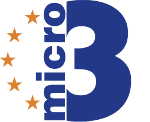The Max Planck Digital Library (MPDL) cordially invites you to participate in the Open Science Days 2016.
The event will take place at the Harnack House in Berlin and is going to extend over one and a half days (February 17/18).
Having no specific focus topic at the first Open Science Days in 2014, we dealt with the various aspects of openness in the different areas of Open Science. At our next event we would like to put an emphasis on one of these areas: Citizen Science.
Citizen Science refers to the growing involvement of amateur or non-professional scientists in the research process. In some research fields, like e.g. environmental research, this involvement already has become a common practice. Other research disciplines seem to be more reluctant and yet it is unclear, whether Citizen Science will be an important factor in all areas of the entire research process in the future.
SETI@home, an early approach to internet-based Citizen Science, already started in 1999. Being focused on distributed computing, this project depends on a rather passive contribution by citizens.
Today, we see a broad range of projects that require a more active role: Citizens are asked to collect water samples or to describe ancient texts. Interested people can decide to analyze pictures or video recordings of tiny worms, far galaxies or prowling groups of apes.
More complex projects involve citizens that are willing to build up their own technical equipment for rather demanding and precise measurements and observations.
Some discussions even concern the involvement of citizens in the establishment of hypotheses and the planning of research.
- Which are the most important perspectives and opportunities deriving from this opening of research processes for a broader public?
- Are there different motivating factors for the researchers or research organizations that already have taken action in the field of Citizen Science?
- What have been their experiences so far?
- Are there any serious risks, those who promote the advancement of Citizen Science should bear in mind?
Participants will have the opportunity to present their own ideas, experiences, initiatives or activities and to discuss current topics related to Citizen Science. Aside from the mentioned thematic priority, there will also be talks and room for discussion on current developments concerning further areas of Open Science.
The conference language will be English. The participation fee is 100 € and the number of participants is limited to 80 persons.
Frank Oliver Glöckner will give a talk about MyOSD.



